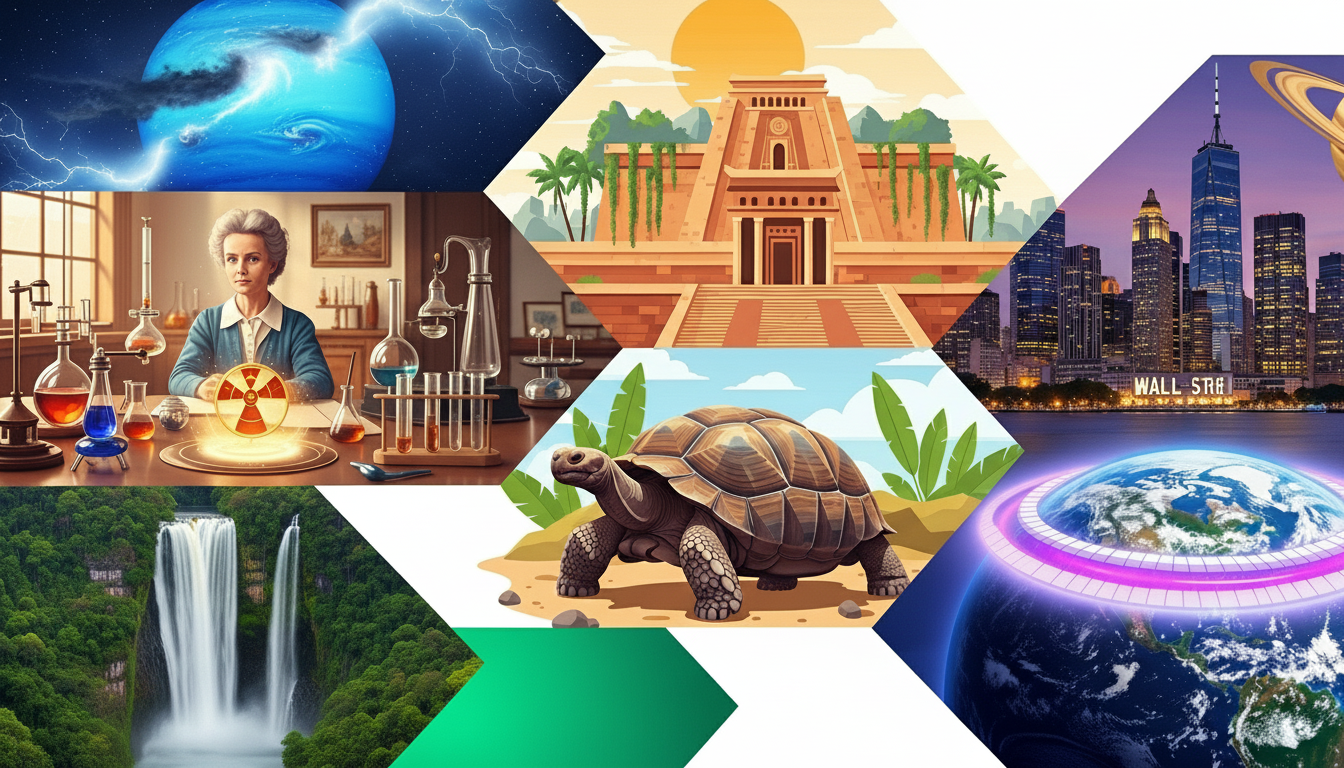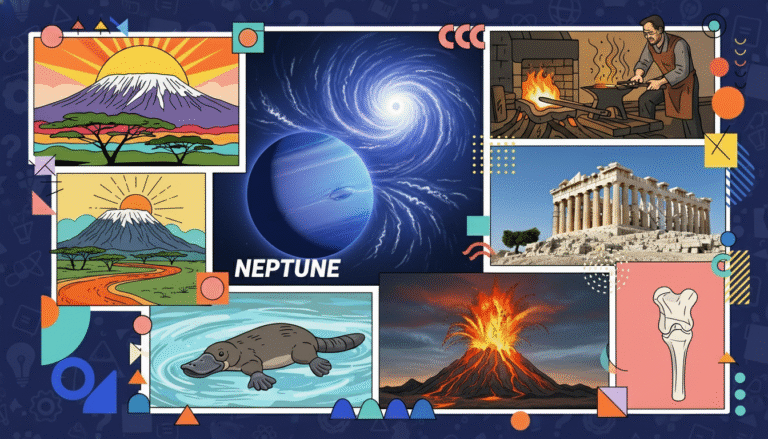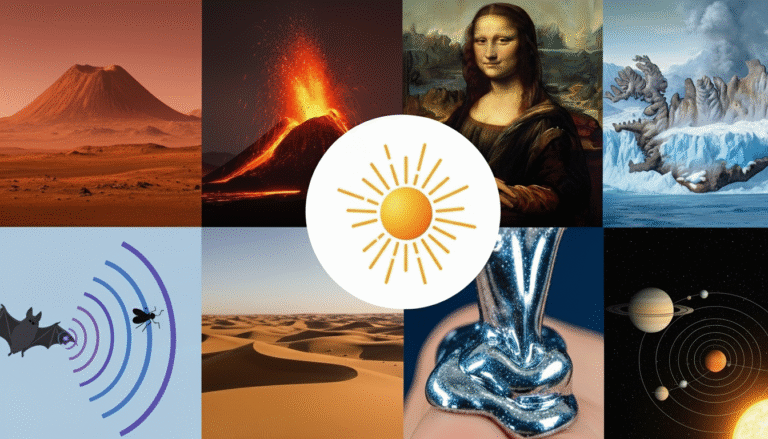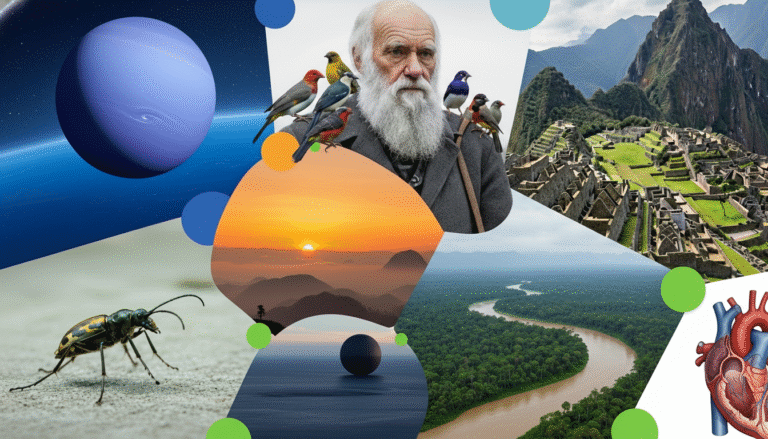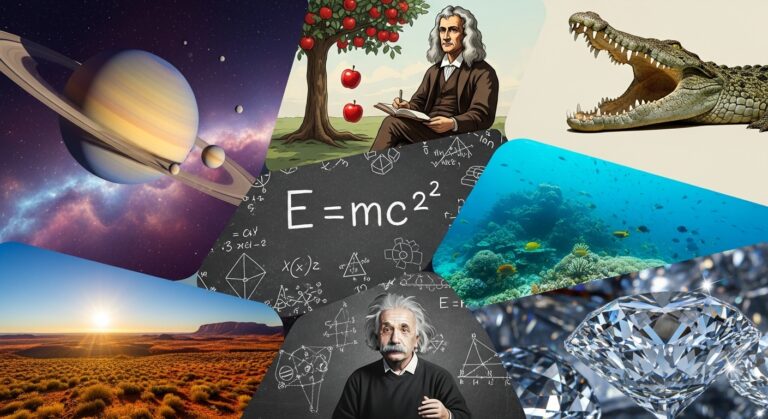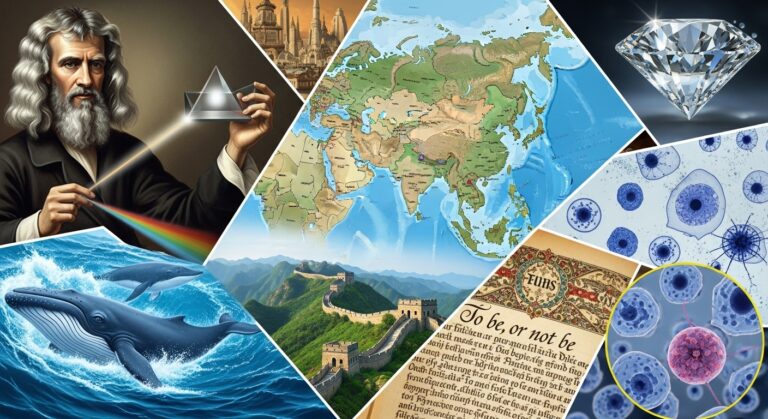General Knowledge Test Packed With Interesting Questions
If you enjoy learning, challenging your mind, and discovering new facts, then this interesting general knowledge test is perfect for you. General knowledge helps you understand the world more deeply — across science, geography, biology, history, and culture. A test filled with interesting questions stimulates your curiosity and encourages you to think more critically and creatively.

In this article, we explore the fascinating stories behind each question. By the time you finish reading, you will not only know the correct answers but also understand their significance in the larger world.
Neptune: The Planet With the Most Intense Storms
Neptune is known for its violent and powerful storms, some reaching speeds faster than the sound barrier on Earth. Winds on Neptune have been measured at over 2,100 km/h. Its atmosphere, rich in hydrogen, helium, and methane, creates deep blue colors and turbulent patterns.
These storms form massive dark spots, similar to Jupiter’s Great Red Spot but often larger relative to the planet’s size. Neptune’s intense internal heat likely drives these dramatic weather patterns.
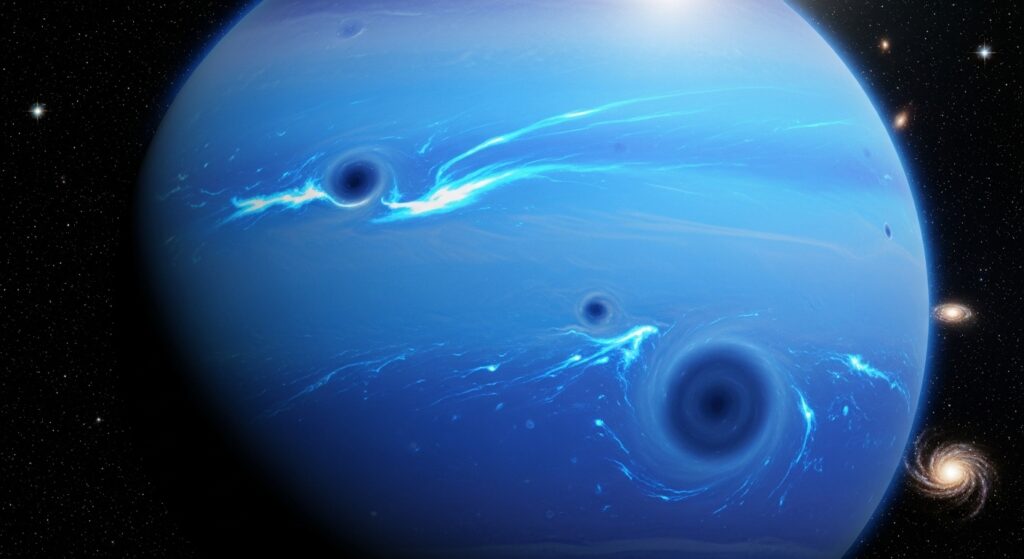
Marie Curie: Pioneer of Radioactivity
Marie Curie made groundbreaking discoveries in radioactivity and isolated two new elements: polonium and radium. She was the first woman to win a Nobel Prize and the only person ever to win in two different scientific fields — Physics and Chemistry.
Curie’s work laid the foundation for:
- Medical radiation treatments
- Nuclear science
- Radiology
- Atomic research
Her dedication and courage in scientific exploration changed the world.

Babylon: Legacy of an Ancient Civilization
Babylon, one of the most legendary ancient cities, was located in present-day Iraq. Known for its massive walls, scholarly culture, and magnificent structures, Babylon was the heart of the Babylonian Empire.
Famous contributions include:
- The Code of Hammurabi
- The legendary Hanging Gardens (one of the Seven Wonders)
- Advances in astronomy and mathematics
- A center of trade and learning
Babylon’s influence shaped early culture across the Middle East.

Giant Tortoise: The Longest-Living Land Animal
Giant tortoises can live well over 150 years, with some recorded to exceed 180. Their slow metabolism, protective shells, and calm lifestyles contribute to their exceptional longevity.
Found primarily in:
- Galápagos Islands
- Seychelles
These tortoises have played an important role in evolutionary science — Charles Darwin studied them during his journey on the HMS Beagle.

Ozone: Earth’s Protective Shield
Ozone (O₃) forms a layer high in Earth’s stratosphere that absorbs harmful ultraviolet radiation from the Sun. Without this layer, life on Earth would face severe DNA damage and much higher cancer rates.
The discovery of the ozone hole in the 1980s led to global action and environmental policies such as the Montreal Protocol. Since then, the ozone layer has slowly begun to recover.
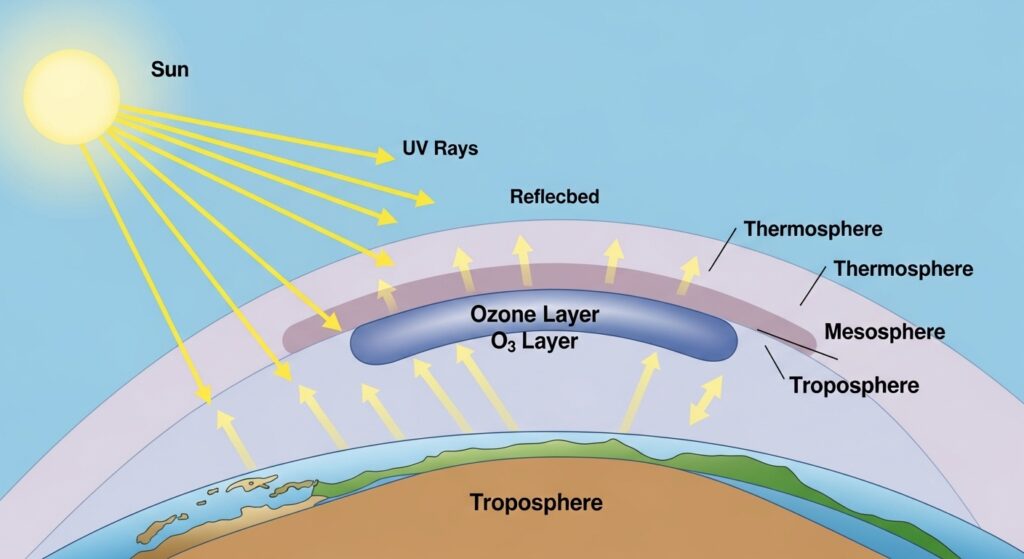
New York City: Financial Capital of the United States
New York City is considered America’s financial heart because it is home to:
- Wall Street
- The New York Stock Exchange
- Major investment banks
- Global corporations
Its economic influence stretches worldwide. NYC’s multicultural energy, iconic skyscrapers, and global markets make it one of the most impactful cities on Earth.

Hydrogen: The First Element on the Periodic Table
Hydrogen, with atomic number 1, is the simplest and most abundant element in the universe. It powers stars, including our Sun, through nuclear fusion.
Uses of hydrogen:
- Space fuel
- Clean energy development
- Industrial processes
- Chemical reactions
Hydrogen also played a crucial role in the formation of galaxies and stars billions of years ago.
Angel Falls: The Highest Waterfall in the World
Located in Venezuela, Angel Falls plunges nearly 1,000 meters from the top of Auyán-tepui mountain. Mist surrounds the waterfall, creating a dreamlike atmosphere.
Angel Falls is named after American pilot Jimmy Angel, who discovered it during a flight in the 1930s.

The Pancreas: Producer of Insulin
The pancreas plays a critical role in digestion and blood sugar regulation. It produces insulin, a hormone that allows cells to absorb glucose from the bloodstream.
Diseases like diabetes occur when insulin levels are imbalanced or when the body cannot use insulin effectively.

Electrons: Negatively Charged Particles
Electrons orbit the nucleus of atoms and carry a negative electric charge. They are essential in:
- Electricity
- Chemical reactions
- Bonding
- Electronics
- Radiation
The movement of electrons in wires is the basis of electrical power.
A Test Full of Interesting General Knowledge
This interesting general knowledge test covers science, history, physics, geography, biology, and culture. It gives you a well-rounded burst of facts that enrich your mind. The more you explore these topics, the sharper your thinking becomes. Learning interesting facts makes knowledge stick and encourages curiosity for a lifetime.

